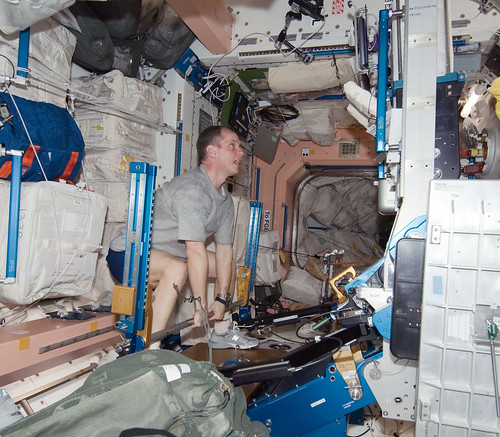Working Out in Space

According to Professor Fitts of Marquette University, astronauts need to stay fit while they travel to Mars. Tom Held’s piece in today’s Milwaukee Journal Sentinel is worth reading…
Over five years, the MU professor and his team analyzed muscle biopsies taken from nine astronauts and cosmonauts before and after their six-month missions on the International Space Station. Their muscles atrophied and lost power significantly, despite regular workouts on a treadmill and resistance machine.
The lack of gravitational force to stress the muscles continues to be a problem.
“The muscle is being activated, but there is no load,” said Fitts, chairman of the Department of Biological Sciences at Marquette.
“The exercises are not adequate at the moment,” he said. “We showed that treadmill running was more effective than biking in protecting against muscle loss, but it’s still not good enough.”
Fitts has been studying the physical effects of prolonged space flight for nearly two decades, starting with analysis of muscle loss during the shorter space shuttle flights. The results of those studies guided the nutritional and exercise plans implemented by astronauts on longer missions, and the new findings will be vital if the U.S. pursues manned missions to Mars.
The paper published in the Journal of Physiology provides an in-depth analysis of 2,000 muscle fibers sampled from the calves of astronauts and cosmonauts who spent six months on the space station. Their missions were spread from 2000 to 2005.
Fitts found the muscles suffered a 35% loss of force and a 20% loss of size in the slow-twitch fibers. The loss of power – the key to movement – was roughly 45%.
“The biggest problem is the wasting of the muscle and the reduction of the motion, and as a result the power loss is much greater than the atrophy,” Fitts said.
“The danger would be in an emergency,” he said. “If there was an emergency on landing, they wouldn’t be able to egress out of the vehicle rapidly.”
Equally problematic is the loss of stamina. Astronauts attempting space walks or other operations after months in a low-gravity environment would fatigue quickly, limiting their capacity to work.